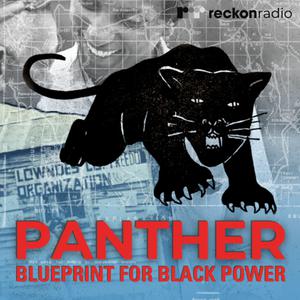
Reckon Radio
Reckon
Stories of the American experiment
- 40 minutes 10 secondsS4E6: How Movements Make Us Taller, featuring DeJuana Thompson & TN Rep. Justin J. Pearson
In the final episode, Woke Vote founder and Birmingham Civil Rights Institute President, DeJuana Thompson, and Tennessee State Rep Justin J. Pearson sit down with hosts Eunice Elliott and Roy S. Johnson. The four discuss the status of the movement for Black Power today—what's changed, what hasn’t and how the strategies of the Lowndes County Freedom Organization (LFCO) hold up today. To Pearson and Thompson, the past isn’t the past. It’s our toolkit for tomorrow.
Learn more about your ad choices. Visit megaphone.fm/adchoices
9 August 2023, 9:00 am - 33 minutes 24 secondsS4E5: The Black Panthers' Blueprint for Change
Election Day for the Lowndes County Freedom Organization’s candidates didn’t go the way they wanted. But their party’s work - and its mascot the Black Panther - has rippled down through the years and across the country. To show what the Lowndes County Freedom Organization means today, journalists Eunice Elliott and Roy S. Johnson go back to the very origins of the Voting Rights Act, and the ways its opponents have tried to tear it down.
Learn more about your ad choices. Visit megaphone.fm/adchoices
2 August 2023, 9:00 am - 38 minutes 58 secondsS4E4: The Peril of a Black Party on the Ballot
How will the first election with an all-Black party end? It’s Election Day, 1966, and the Voting Rights Act is being put to the test. The Lowndes County Freedom Organization’s candidates have canvassed, campaigned and called on Black voters to show up to the polls for the Black Panther - at no small danger to themselves.
Learn more about your ad choices. Visit megaphone.fm/adchoices
26 July 2023, 9:00 am - 31 minutes 28 secondsS4E3: Don't Back a Panther into a Corner
What did the Lowndes County movement look like? Everything Black folks did was an act of rebellion—it wasn’t just door knocking and registering to vote. Plus the story of how the Black Panther symbol was born.
Learn more about your ad choices. Visit megaphone.fm/adchoices
19 July 2023, 9:00 am - 34 minutes 48 secondsS4E2: “Bloody Lowndes” - The County that Changed the Nation
How did a county known as “Bloody Lowndes” become the birthplace of the Black Panther? Because the people of Lowndes met vicious, racist violence with a powerful response.
Learn more about your ad choices. Visit megaphone.fm/adchoices
12 July 2023, 9:15 am - 35 minutes 8 secondsS4E1: Between Selma and Montgomery, a Black Panther is Born
It’s a story we think we know well. It’s 1965, and the Civil Rights Movement is in full swing. Thousands are marching on Montgomery, protesting the treatment of Black Americans. But what about the people who lived alongside that road? The people who remained after the national cameras and big names left town were the lifeblood of the movement for Black Power.
Learn more about your ad choices. Visit megaphone.fm/adchoices
12 July 2023, 9:00 am - 2 minutes 47 secondsIntroducing 'Panther: Blueprint for Black Power'
This is the story of the surprising roots of the Black Panther and the election when America truly became a democracy.
Learn more about your ad choices. Visit megaphone.fm/adchoices
3 July 2023, 5:00 am - 44 minutes 52 secondsS3E6: Point 14
The killing of Bonita Carter in 1979 changed Birmingham, and its leadership. Protests following her death forced the city to reshape its police department, four decades before Black Lives Matter made its greatest impact. It was a decade after Black civil rights leaders had gathered in Birmingham to make 14 points to their white peers in Birmingham, to demand acknowledgement that Black people were still treated as second class citizens.
They pointed out longstanding police violence against Black residents, that Black people consistently were given less courtesy and respect from police. That white people got a benefit of the doubt as Black people got a bullet. Today, conversations across the country are almost the same. On the final episode of Unjustifiable, John Archibald and Roy S. Johnson discuss what has changed, and what Bonita Carter still has to teach us.
Show Notes:
Guests: Uche Bean, Brian Burghart, Catherine Conner, Shelley Stewart, Jasmyn Story, Randall Woodfin
Creator: John Archibald
Hosts: John Archibald & Roy S. Johnson
Executive Producer: John Hammontree
Producer & Audio Engineer: Alexander Richey
Producers: Amy Yurkanin and Marsha Oglesby
Score: Thad Saajid, Austin Motlow, David Marsh, and Danny Ray Wilkerson, Jr. Additional music contributed by Jeremy Smith.
Music: “Jackson” by The Pollies; Single Lock Studios; “Tension” by Todd Snider
Voice Acting: R.L. Nave, Barnett Wright
See acast.com/privacy for privacy and opt-out information.
Learn more about your ad choices. Visit megaphone.fm/adchoices
14 December 2020, 10:30 am - 33 minutes 35 secondsS3E5: "Shoot her again"
Who is Officer George Sands? The Birmingham police officer had amassed more than a dozen complaints before fatally shooting Bonita Carter. He’d been seen as a problem by some city leaders, while others protected him – saying he was just a symptom of a poorly trained police department rather than a rogue bad apple?
Before being elected mayor, Richard Arrington had been shocked to learn Sands was Bonita Carter’s killer, for he had been in so much trouble before. But Sands was protected by the powerful police union, and county rules that restricted the authority of the mayor.
Arrington set out to integrate and reshape the police department, to change the shooting policy that had left so many Black men dead. But would it be possible to remove Sands?
And, given all that’s happened since, how does Sands feel about that night in 1979?
Show Notes:
Guests: George Sands, T.K. Thorne, Nathaniel Bagley, Richard Arrington, Uche Bean
Creator: John Archibald
Hosts: John Archibald & Roy S. Johnson
Executive Producer: John Hammontree
Producer & Audio Engineer: Alexander Richey
Producers: Amy Yurkanin and Marsha Oglesby
Score: Thad Saajid, Austin Motlow, David Marsh, and Danny Ray Wilkerson, Jr. Additional music contributed by Jeremy Smith.
Music: “Call on Me” by Cedric Burnside; Single Lock Studios
Voice Acting: Ike Morgan, Jeremy Smith
See acast.com/privacy for privacy and opt-out information.
Learn more about your ad choices. Visit megaphone.fm/adchoices
7 December 2020, 10:30 am - 35 minutes 28 secondsS3E4: Catching the Devil on All Sides
The status quo was broken in Birmingham, Alabama, in the weeks after the Bonita Carter killing. The city once known as Bombingham, as the Johannesburg of the South, reeled from protests, and counter-protests from the Ku Klux Klan. A scientist, a former college dean named Richard Arrington who had long been aligned with that white progressive mayor, David Vann, broke away from the mayor to launch his own campaign. A committee formed by Vann to take testimony from witnesses to the shooting – one of the main reasons we can reconstruct the events of the crime – found Officer George Sands had no cause to shoot Carter. Yet Sands remained on the force.
Just sixteen years after Dr. Martin Luther King Jr. marched through the city, the election of 1979 would prove pivotal for Black residents exercising their voting power. How would voters decide?
Show Notes:
Guests: Richard Arrington Jr., Richard Mauk, Scott Douglas, Solomon Crenshaw
Creator: John Archibald
Hosts: John Archibald & Roy S. Johnson
Executive Producer: John Hammontree
Producer & Audio Engineer: Alexander Richey
Producers: Amy Yurkanin and Marsha Oglesby
Score: Thad Saajid, Austin Motlow, David Marsh, and Danny Ray Wilkerson, Jr. Additional music contributed by Jeremy Smith.
Music: “Haverford Impromptu #2” by Sun-Ra; and “Lay it Down” by Donnie Fritts
See acast.com/privacy for privacy and opt-out information.
Learn more about your ad choices. Visit megaphone.fm/adchoices
30 November 2020, 10:30 am - 37 minutes 7 secondsS3E3: The Shoebox
What was it about the killing of Bonita Carter that sparked police reform? The search for that answer led the Reckon Radio team into the bowels of the Birmingham Public Library, to a recently discovered box of “Birmingham Police Shooting and Incident Cards.” These cards, seen by almost no one in decades, detail the lives of hundreds of people in Jefferson County, Alabama – the deaths of hundreds, killed by police and security officers and written off, seemingly casually, as “justifiable.”
Almost all the victims are Black. Almost all are men. Many are young, teenagers, shot in the back as they ran, or walked away, or were simply suspected of a crime as trivial as picking up a few bucks off a lunch counter. What was it about Bonita Carter? The answer in these files and others, which indicate that more police in this one county shot as many as 500 people in the last century, that they were not just allowed to shoot people they believed had committed a crime, they were expected and encouraged to do it. Especially if the suspect were Black.
Show Notes:
Guests: Cynthia Carter, Brian Burghart, Jay Glass, Uche Bean
Creator: John Archibald
Hosts: John Archibald & Roy S. Johnson
Executive Producer: John Hammontree
Producer & Audio Engineer: Alexander Richey
Producers: Amy Yurkanin and Marsha Oglesby
Score: Thad Saajid, Austin Motlow, David Marsh, and Danny Ray Wilkerson, Jr. Additional music contributed by Jeremy Smith.
Music: "Vehemence," by Thad Saajid
Voice Acting: R.L. Nave, Barnett Wright, Danny Ray Wilkerson, Jr.
See acast.com/privacy for privacy and opt-out information.
Learn more about your ad choices. Visit megaphone.fm/adchoices
23 November 2020, 10:30 am - More Episodes? Get the App
Your feedback is valuable to us. Should you encounter any bugs, glitches, lack of functionality or other problems, please email us on [email protected] or join Moon.FM Telegram Group where you can talk directly to the dev team who are happy to answer any queries.
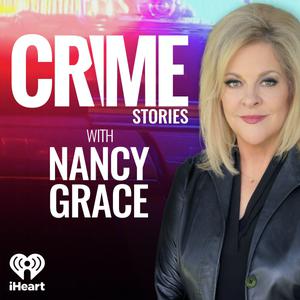 Crime Stories with Nancy Grace
Crime Stories with Nancy Grace
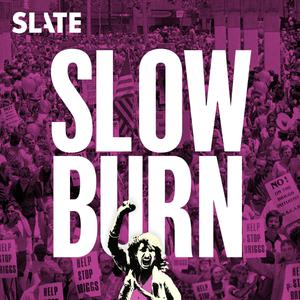 Slow Burn
Slow Burn
 Texas Monthly True Crime: The Problem With Erik
Texas Monthly True Crime: The Problem With Erik
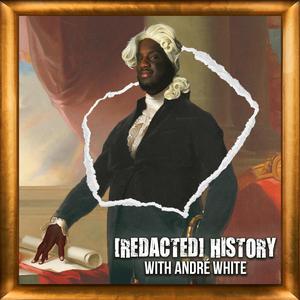 [REDACTED] History
[REDACTED] History
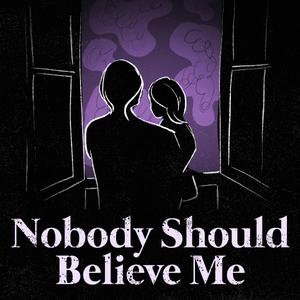 Nobody Should Believe Me
Nobody Should Believe Me
 Betrayal: Weekly
Betrayal: Weekly